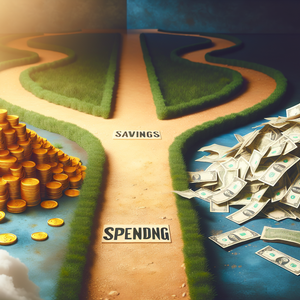Finding Balance in the Social Media Jungle: Navigating Mental Health in the Facebook Age

Research indicates that excessive use of Facebook can lead to various mental health issues. A study published in the Journal of Social and Clinical Psychology found that individuals who limited their social media use to 30 minutes a day reported significant reductions in feelings of loneliness and depression. The constant barrage of curated images and stories can create unrealistic expectations, leading to comparison, jealousy, and dissatisfaction with one’s life. Psychologist Dr. Emily Carter, who specializes in social media psychology, explains, “Facebook can create a distorted sense of reality where users feel pressured to present a perfect version of themselves. This can lead to feelings of inadequacy and anxiety when one’s real life doesn’t measure up to the highlight reels of others.” Moreover, the addictive nature of Facebook can exacerbate these feelings. The endless scroll feature and the constant notifications are designed to keep users engaged, often at the expense of their mental well-being. Studies have linked high levels of social media engagement to increased anxiety, depressive symptoms, and a decline in overall life satisfaction.
Strategies for Maintaining a Healthy Balance
1. **Set Time Limits**: One effective way to mitigate the negative impacts of Facebook is to set time limits on usage. By designating specific times for social media engagement, users can avoid mindless scrolling and focus on more fulfilling activities. For instance, individuals might choose to check Facebook only during lunch breaks or after work, freeing up time for real-world interactions and hobbies. 2. **Engage in Digital Detoxes**: Taking regular breaks from social media can be beneficial for mental health. A digital detox, where one abstains from social media for a set period, allows individuals to reconnect with their environment and relationships. Dr. Carter suggests starting with a weekend detox, gradually increasing the duration as one becomes more comfortable with a reduced online presence. Many users report feeling liberated and more present in their daily lives after implementing detoxes. 3. **Curate Your Feed**: Another strategy is to actively curate your Facebook feed. Unfollowing accounts that trigger negative feelings or induce comparison can help create a more positive online experience. Instead, follow pages that inspire, educate, or entertain, ensuring that your social media interactions are enriching rather than detrimental. Research shows that a positive online environment can significantly boost mood and self-esteem. 4. **Prioritize Real-Life Interactions**: Making a conscious effort to prioritize face-to-face interactions can significantly enhance mental well-being. Scheduling regular meet-ups with friends or family and engaging in community activities can enrich our lives in ways that online interactions often cannot. These connections foster a sense of belonging and fulfillment that social media cannot replicate. Engaging in local clubs, volunteering, or participating in community events can deepen relationships and provide a much-needed break from the online world.
The Importance of Professional Guidance
For those struggling with the adverse effects of social media, seeking professional help can be a crucial step. Therapists and counselors can provide tools and strategies tailored to individual needs, helping clients navigate their relationship with social media in a healthier way. Dr. Carter emphasizes that “opening up about these experiences can be transformative. Therapy can help individuals understand their emotions and develop healthier coping mechanisms.” Mental health professionals can guide individuals in setting boundaries and recognizing unhealthy patterns in their social media use.
While Facebook and other social media platforms offer numerous benefits, it is essential to recognize the potential psychological pitfalls that come with their use. By implementing strategies such as time limits, digital detoxes, curated feeds, and prioritizing real-life connections, individuals can cultivate a healthier relationship with social media. Ultimately, finding balance in the social media jungle is about understanding one’s own needs and making intentional choices that foster mental well-being. As we navigate the complexities of our digital lives, let us prioritize our mental health and cultivate meaningful connections both online and offline. In doing so, we can harness the power of social media while safeguarding our mental health in the Facebook age.
Social Media Mental Health Specialist
Non-profit organizations, mental health agencies, educational institutions
Core Responsibilities
Develop and implement programs designed to promote mental well-being in social media users.
Conduct research on the psychological impacts of social media usage and share findings with stakeholders.
Create engaging content to educate users on healthy social media habits and mental health awareness.
Required Skills
Strong understanding of psychology, particularly in relation to social media.
Experience in content creation and digital marketing strategies.
Excellent communication skills to effectively convey complex ideas to diverse audiences.
Digital Wellness Coach
Health and wellness centers, private practice, corporate wellness programs
Core Responsibilities
Provide one-on-one coaching sessions to clients seeking to balance their online and offline lives.
Develop personalized digital wellness plans that include strategies for reducing screen time and enhancing real-life interactions.
Facilitate workshops and group sessions focusing on healthy technology use.
Required Skills
Certification in coaching or counseling, with a focus on digital wellness or mental health.
Experience in behavioral modification strategies and motivational interviewing.
Ability to analyze clients’ social media habits and provide tailored recommendations.
Research Analyst in Social Media Psychology
Universities, research institutions, policy think tanks
Core Responsibilities
Conduct empirical studies examining the relationship between social media use and mental health outcomes.
Analyze data and present findings to academic and corporate stakeholders to inform policy and practices.
Collaborate with psychologists and sociologists to develop comprehensive research initiatives.
Required Skills
Strong background in psychology, sociology, or related fields, with expertise in research methodologies.
Proficiency in statistical software and data analysis tools (e.g., SPSS, R).
Excellent writing skills for preparing research reports and publications.
Community Engagement Coordinator
Non-profit organizations, community health centers, local government agencies
Core Responsibilities
Organize community events focused on mental health awareness and the impact of social media.
Cultivate relationships with local organizations, schools, and mental health professionals to promote engagement initiatives.
Create marketing materials and social media campaigns to attract participants and spread awareness.
Required Skills
Strong organizational and project management skills, with experience in community outreach.
Knowledge of mental health issues and effective communication strategies.
Proficiency in social media platforms and digital marketing techniques.
Content Strategist for Mental Health Advocacy
Mental health organizations, advocacy groups, media outlets focused on health and wellness
Core Responsibilities
Develop and manage content strategies that promote mental health awareness through social media and online platforms.
Collaborate with mental health professionals to ensure content is accurate, relevant, and impactful.
Monitor engagement metrics and adapt content strategies to enhance outreach and effectiveness.
Required Skills
Experience in content creation, social media marketing, and digital communications.
Strong writing and editing skills, with the ability to tailor messages for various audiences.
Familiarity with mental health topics and advocacy.


